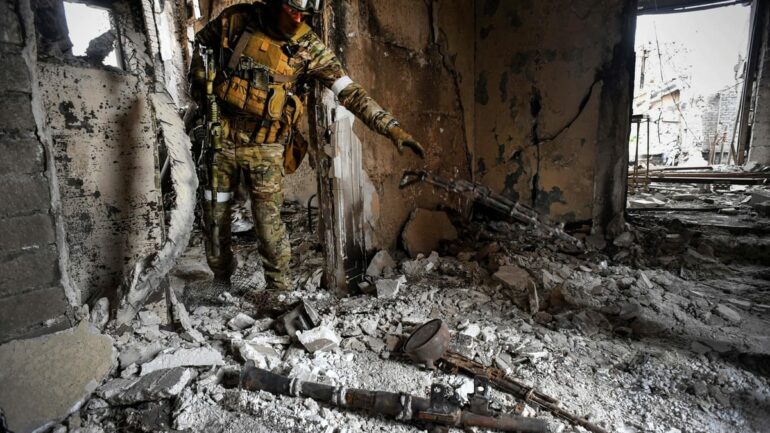
Curious Kids is a series for children of all ages. If you have a question you’d like an expert to answer, send it to [email protected].
What are war crimes and when did they start? – Artie, 12, Queens, New York
I imagine you’re asking about “war crimes” because you’ve heard that term mentioned lately in news about the conflicts underway in Gaza, Ukraine and Sudan. The idea may sound confusing, because war always includes killings and destruction. But special rules restrict how wars can be fought.
I am a professor who studies international law – the set of rules that defines what a war crime is.
Why do we need laws about war?
Historically, war had few limits. Individual societies occasionally attempted to control how wars were fought. But for much of human history, when nations attacked each other, it wasn’t just soldiers who died. Many civilians – ordinary people who weren’t fighting in the war – died, and whole cities were destroyed.
After wars ended, survivors from the losing country might even end up as slaves taken back to the victorious country.
There were no “laws of war” that restricted conquests by the Egyptians and Romans in ancient times between 600 and 30 B.C. No laws limited the Mongol invasions of Europe in the 13th century or the European colonial invasions of Latin American, African and Asian societies in the 18th through 20th centuries.
Even as recently as the 1940s, during World War II, U.S. and U.K. forces killed hundreds of thousands of people in their bombings of German and Japanese cities. Nazi Germany systematically murdered approximately 6 million Jews and others during the Holocaust.
When did war get laws?
There is no supreme world government that can create laws for all countries, so international law is formed by rules that countries agree to respect. These are called treaties.
In the 19th century, countries and many private groups worldwide began working to develop the laws of war.
Early treaties on war were meant primarily to protect soldiers from unnecessary pain and suffering. Countries agreed to stop using really dangerous weapons such as poison gas, for example. They also banned murdering wounded enemies and soldiers who tried to surrender, because those killings aren’t necessary to win a war.
Later, after the horrors of World War II, the laws of war were expanded to protect civilians.
Developing all these rules has taken well over a century. Nations agreed to them because everyone has a shared interest in limiting some of the worst aspects of how war is fought. The goal is to keep everyone caught up in war as safe as possible, while accepting that some innocent people will still die.
What are war crimes?
The rules of war are set out primarily in four treaties from 1949 called the Geneva Conventions. Every country in the world accepts these rules, which have been expanded several times in the years…



